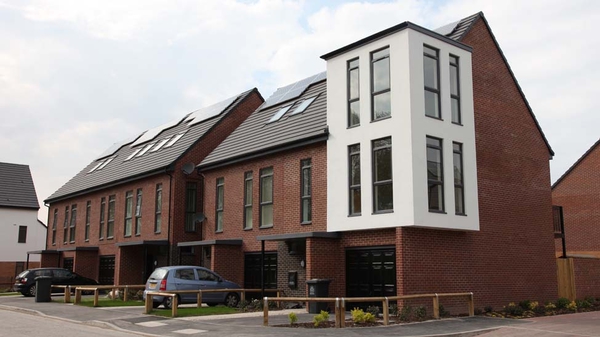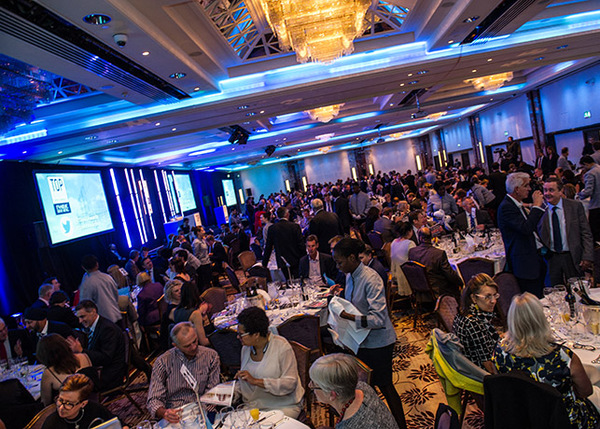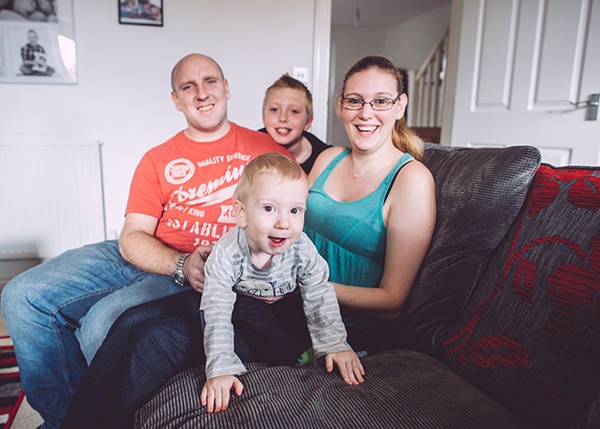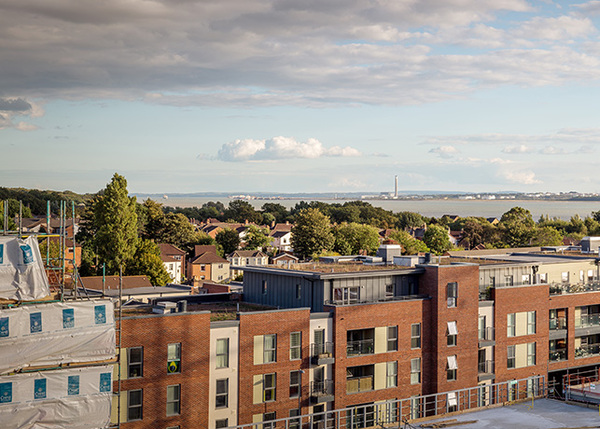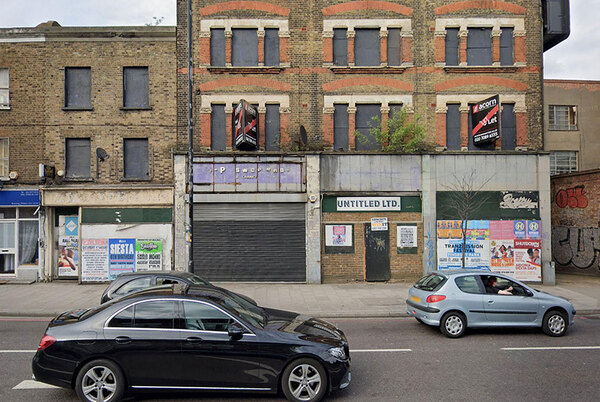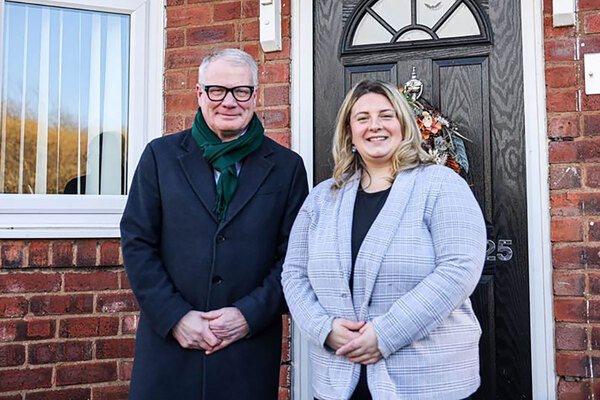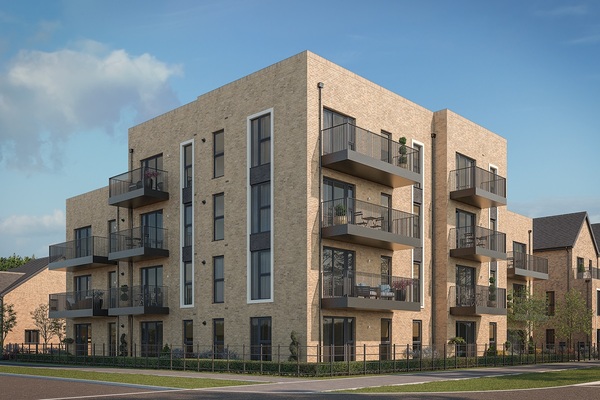Top 60: Innovative Developments of the Year
Inside Housing is showcasing the best 60 developments of the last year. This year, our list is split into 10 categories of excellence which we will reveal over the next 10 weeks. Michael Atherton reports on the most innovative developments of the year.

A word from our sponsor
I’m delighted to be celebrating the fantastic work being undertaken all over the country to build the high-quality, sustainable homes that the country so badly needs. Affordable housing has always set the standard, and it’s vitally important during a period of real crisis in housing supply that we do not take the easy option, lowest common denominator approach.
We should aim high, and recognise those that are striving for more - just like SHIFT, the sector’s sustainability standard, does by measuring organisations against more than 50 environmental criteria, including carbon dioxide emissions, water use, landfill waste and response to climate change risks. SHIFT helps organisations achieve tangible results, from cutting bills to improving quality of life for residents and staff. The number of SHIFT accredited organisations - mainly social landlords - has quadrupled from 16 in its first year to 68 today.
Measuring performance is important - but it also seems to be effective. On average, accredited organisations attribute more than half of their environmental savings to SHIFT. And our research has found that SHIFT accreditation can play a significant role in improving reputation. Detailed reports demonstrate environmental credentials to funders, partners and regulators, and compare performance against peers in the sector. The more organisations accredited, the bigger voice we have and the more we learn from each other. Our mantra is ‘measure, compare, improve’ - surely as good as any triple bottom line. I hope you will come on board and help us push for more.
Andrew Eagles, managing director, Sustainable Homes

The judges
Neil Goldberg, planning consultant, Haringey Council, and director of town planning, Urban Community
Elaine Elkington, director, Elaine Elkington and Associates
Steve Douglas, partner, Altair
Dennis Seal, chair of housing hub, Buildoffsite
The judges will choose an overall winner in this category, to be announced on Friday 16 October in London.

Eddleston Drive
Number of homes in development: 5
Cost: £620,000
“Linking provision of new homes to repairs and maintenance in outsourced services adds a different dimension to delivery.”
Dennis Seal, chair of housing hub, Buildoffsite
The scheme: All five of the new, two-bedroom homes on Eddleston Drive are social rent. Built to accommodate smaller families caught by the bedroom tax, the homes were built by the repairs and maintenance team of Nottingham City Homes (NCH). The 29,000-home arm’s length management organisation owns the homes outright - a model that NCH hopes to replicate across the city.
All the craftspeople were local. Almost all materials were sourced locally and the entire development was funded from existing surpluses, so no grant funding was required.
Existing roads, footpaths and trees were preserved. Any waste from the building process was recycled - only three skips went to landfill.

Beechdale School
Number of homes in development: 40
Cost: £5.8m
“This entry has taken Accord and the affordable housing sector in general into new territory. This is a model that cannot only be replicated by others - it will be.”
Dennis Seal, chair of housing hub, Buildoffsite
The scheme: A former derelict school in Walsall has made way for 40 homes.
The Accord Group development of two, three and four-bedroom homes was manufactured at its offsite factory to be low carbon and have a low environmental impact. The 13,000-home landlord is the first housing association to set up such a facility.
Potential residents of the affordable rent properties were involved ahead of time, allowing the homes to be personalised and creating a sense of community ownership. . A housing co-operative for residents will manage the estate.

The Edge
Number of homes in development: 18
Cost: £3.1m
“The layout and design around the constraints of the site was sympathetically achieved, as was its orientation.”
Dennis Seal, chair of housing hub, Buildoffsite
The scheme: Set in 10 acres of landscaped parkland, The Edge in Lincoln is made up of 18 houses, a mix of three and four bedrooms.
Shared facilities include a community meeting room, a tennis court and associated small pavilion, a two-level lake over which all 18 properties enjoy an outlook and a community orchard; allotments are also provided one per property.
A management company maintains the wood, lake, parkland, and site infrastructure and each property holds one-share, thus giving every household shared objectives.
The homes are built triple-glazed with high thermal mass, super-insulated house-shells, with concrete floors and concrete stairs and near air-tight construction. Heat-recovery air-management systems means traditional central heating is not required.
Energy and water-efficient appliances, LED lighting, infrared heating technology and a shower waste heat recovery system have enabled the cost of space, water heating, and lighting to not exceed an average throughout the year of £1 per day at 2015 energy prices
A site-wide rainwater harvesting system was installed to reduce mains-water consumption by around 40%, while effluent will also be self-contained on-site processed by an eco-friendly bio-digester system.

Kingston Heights
Number of homes in development: 137
Cost: £13.5m (affordable homes portion)
“This entry has overcome many difficult engineering problems using materials and techniques that are traditionally available in the market.”
Dennis Seal, chair of housing hub, Buildoffsite
The scheme: Kingston Heights includes 137 homes (56 for 57,000-home housing association Affinity Sutton made up of 38 affordable rent, 18 shared ownership, and 81 for private sale) plus shell and core development for a 142 bedroom hotel to improve the area around a unsightly and noisy live sub-station, which has now been encapsulated in a concrete and steel box. This eliminated noise and vibration from the invisible but still fully functional sub-station, meaning residents can now leave windows open.
The project is the first of its kind and involved many risks and uncertainties in planning and execution. The sub-station is part of the National Grid, serving 80,000 customers, and had to continue to function throughout the build programme.

Old Farm Road
Number of homes in development: 2
Cost: £318,000
“Focusing on space heating has enabled this entry to align design options with practical solutions.”
Dennis Seal, chair of housing hub, Buildoffsite
The scheme: A pair of social rent terraced houses on Old Farm Road, 5,200-home Poole Housing Partnership designed this project to trial an innovative renewable space heating and roofing system.
Unlike many new technologies, the tenant will not notice anything different about the way the heating system, controlled by a standard timer and thermostat, works. The energy source is a unique roofing system constructed of aluminium planks filled with water warmed by the sun and able to absorb ambient heat at night and during winter.

Richardson’s Yard
Number of homes in development: 36
Cost: £900,000
“The use of the containers to achieve pop-up homes is key to this entry ticking many of the boxes that the judges are looking for.”
Dennis Seal, chair of housing hub, Buildoffsite
The scheme: An under-utilised parcel of brownfield land is now filled with shipping container homes transformed into ‘move on accommodation’ for vulnerable people. The reusable buildings from Brighton Housing Trust, which has about 300 tenants, are an interim solution to the chronic need for affordable housing in Brighton and Hove.
The homes are bespoke, light on the ground and provide adequate and comfortable living space, but are easily relocated. Tenants (single or couples) have their own front door, private kitchens and bathrooms. Installation was completed in 14 weeks start to finish - an average of 2.5 apartments a week. Energy consumption is reduced via LED lighting, good levels of insulation and double-glazing.
